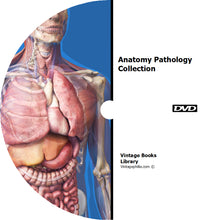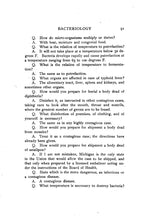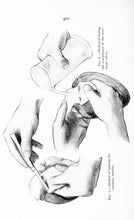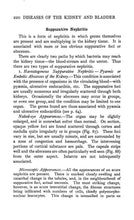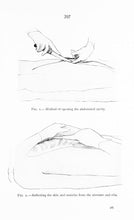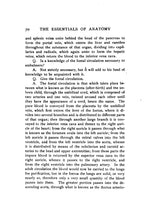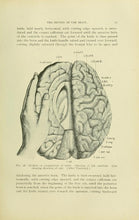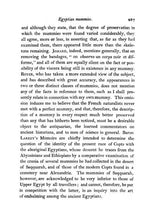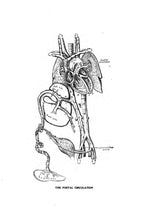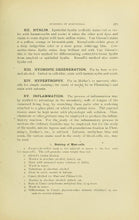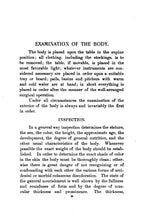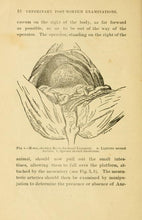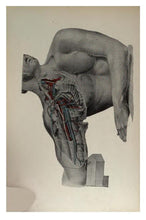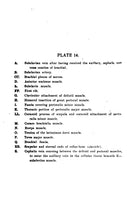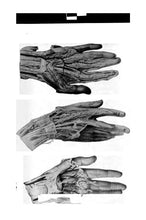
Anatomy is the field of biology that studies the structure of living organisms and their different organs and parts. It is also regarded as the aspect of natural science that is concerned with how the organization of the structure of living things. The study of anatomy is an ancient science and it dates back to the inception of prehistoric times. The history of anatomy can be traced to ancient Egypt and Greco-Romans. Alcmaeon, a Greek scientist, around the 5th century BCE started the search for anatomical knowledge. Anatomy has six branches that include histology, human anatomy, zootomy, comparative anatomy, etc.
Pathology, on the other hand, is related to the study of the causes and implications of an injury or disease. In general, pathology is often popularly associated with the study of disease and it has a vast range of research endeavors and medical practices. The sub-divisions of pathology include clinical, anatomical, oral and maxillofacial, and molecular pathology. Anatomy and pathology are important studies that provide a wide range of knowledge that is required and vital in performing an autopsy. When carrying out an autopsy, understanding the structure of the body parts and organs and the identification of the causes of diseases and injuries is very important.
An Autopsy can be defined as a medical procedure that involves a surgical approach in performing a comprehensive examination of a corpse to ascertain the cause, means, and manner of the death. It involves the evaluation of any present and visible injury or disease that may have caused the death for further research and learning purposes. Embalming is the practice and science of applying specific chemicals to the remains of a human or animal to preserve their body from further decomposition. Explore the history and types of anatomy and pathology, how to perform an autopsy, and the art of embalming in this collection.
Take a look at the sample pages taken from just some of these books in the collection.
All of the book titles that are included in this DVD are listed as follows:
An Essay on Egyptian Mummies (1825) - 96 Pages
Post Mortems What to Look For and How to Make Them (1885) - 143 Pages
History of Embalming and of Preparations in Anatomy, Pathology, and Natural History (1840) - 278 Pages
Intracranial Tumors Among the Insane (1903) - 249 Pages
A Practical Guide for making Post-Mortem Examinations and for the Study of Morbid Anatomy (1873) - 348 Pages
Post-Mortem Examinations Methods and Technique (1900) - 104 Pages
Practical Anatomy Including a Special Section on the Fundamental Principles of Anatomy (1899) - 474 Pages
Practical Pathology Including Morbid Anatomy and Post-Mortem Technique (1914) - 474 Pages
The Art and Science of Embalming (1898) - 588 Pages
The Essentials of Anatomy Sanitary Science and Embalming (1906) - 294 Pages
The Technique of Post-Mortem Examination (1894) - 200 Pages
Veterinary Post-Mortem Examinations (1891) - 80 Pages
Anatomy and Embalming (1913) - 394 Pages
The Champion Text Book on Embalming (1897) - 454 Pages
Autopsy of President Kennedy (1965) - 123 Pages
Special Autopsy Methods (1918) - 20 Pages
Practical Pathology A Manual of Autopsy and Laboratory Technique for Students and Physicians (1911) - 354 Pages
A Manual of Autopsies: Designed for the Use of Hospitals and for the Insane and Other Public Institutions (1892) - 126 Pages
Post-Mortem Pathology A Manual of Post-Mortem Examinations and the Interpretations to be Drawn Therefrom; A Practical Treatise for Students and Practitioners (1906) - 458 Pages
Post-Mortems; What to Look for and How to Make them with Sections on Infantcide, Poisons, Malformations, etc (1885) - 144 Pages
Pathology, on the other hand, is related to the study of the causes and implications of an injury or disease. In general, pathology is often popularly associated with the study of disease and it has a vast range of research endeavors and medical practices. The sub-divisions of pathology include clinical, anatomical, oral and maxillofacial, and molecular pathology. Anatomy and pathology are important studies that provide a wide range of knowledge that is required and vital in performing an autopsy. When carrying out an autopsy, understanding the structure of the body parts and organs and the identification of the causes of diseases and injuries is very important.
An Autopsy can be defined as a medical procedure that involves a surgical approach in performing a comprehensive examination of a corpse to ascertain the cause, means, and manner of the death. It involves the evaluation of any present and visible injury or disease that may have caused the death for further research and learning purposes. Embalming is the practice and science of applying specific chemicals to the remains of a human or animal to preserve their body from further decomposition. Explore the history and types of anatomy and pathology, how to perform an autopsy, and the art of embalming in this collection.
Take a look at the sample pages taken from just some of these books in the collection.
All of the book titles that are included in this DVD are listed as follows:
An Essay on Egyptian Mummies (1825) - 96 Pages
Post Mortems What to Look For and How to Make Them (1885) - 143 Pages
History of Embalming and of Preparations in Anatomy, Pathology, and Natural History (1840) - 278 Pages
Intracranial Tumors Among the Insane (1903) - 249 Pages
A Practical Guide for making Post-Mortem Examinations and for the Study of Morbid Anatomy (1873) - 348 Pages
Post-Mortem Examinations Methods and Technique (1900) - 104 Pages
Practical Anatomy Including a Special Section on the Fundamental Principles of Anatomy (1899) - 474 Pages
Practical Pathology Including Morbid Anatomy and Post-Mortem Technique (1914) - 474 Pages
The Art and Science of Embalming (1898) - 588 Pages
The Essentials of Anatomy Sanitary Science and Embalming (1906) - 294 Pages
The Technique of Post-Mortem Examination (1894) - 200 Pages
Veterinary Post-Mortem Examinations (1891) - 80 Pages
Anatomy and Embalming (1913) - 394 Pages
The Champion Text Book on Embalming (1897) - 454 Pages
Autopsy of President Kennedy (1965) - 123 Pages
Special Autopsy Methods (1918) - 20 Pages
Practical Pathology A Manual of Autopsy and Laboratory Technique for Students and Physicians (1911) - 354 Pages
A Manual of Autopsies: Designed for the Use of Hospitals and for the Insane and Other Public Institutions (1892) - 126 Pages
Post-Mortem Pathology A Manual of Post-Mortem Examinations and the Interpretations to be Drawn Therefrom; A Practical Treatise for Students and Practitioners (1906) - 458 Pages
Post-Mortems; What to Look for and How to Make them with Sections on Infantcide, Poisons, Malformations, etc (1885) - 144 Pages














